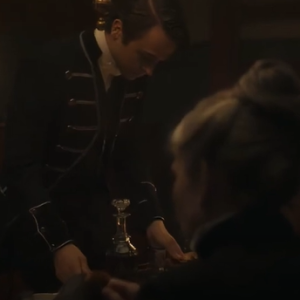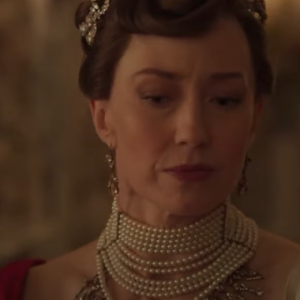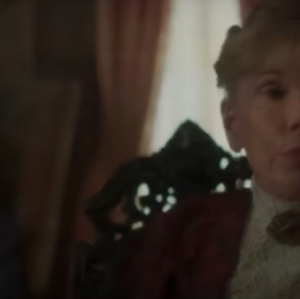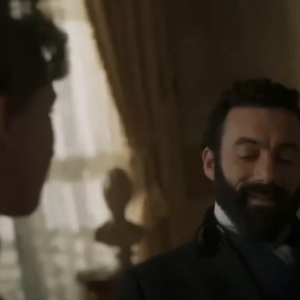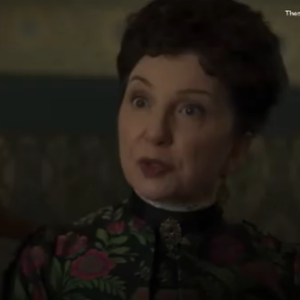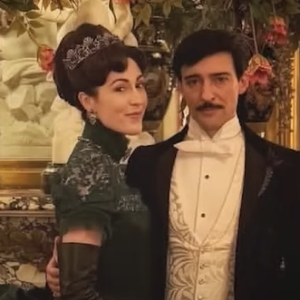In a world where the glitter of New York’s high society can blind even the sharpest minds, The Gilded Age has always thrived on the tension between ambition and affection, between old money’s ironclad rules and new money’s audacious promises. Season 3 delivered a crescendo that felt almost inevitable: Bertha Russell, standing at the crux of power and affection, clawing her way toward the top while her personal world buckled under the weight of her own choices. The finale left us with a quiet, devastating thundercloud—George’s confession about the cost of Bertha’s ruthless pursuit, a flicker of doubt in their marriage that no amount of wealth could disguise, and the lingering question of who would dare threaten the safety of the Russell house when the stakes were never just social but existential. And as the dust settled, a new chapter began not with calm but with a clarion call to struggle, to reimagine, to confront.
Season 4 does not promise merely more drama; it promises a seismic shift in the power dynamics that have long defined these characters. Bertha, who has spent years refining her public persona into a weapon of social ascent, will be forced to confront the vulnerability she has always masked. The rumor mill suggests an unexpected woman entering the scene as a potential rival to her marriage, a development that will test Bertha’s ability to compartmentalize love and loyalty from the ever-present hunger for status. The proximity to her husband’s life, especially as they navigate their son’s wedding, will turn every room into a battleground of whispers and glances, where the line between alliance and betrayal blurs until it becomes almost indistinguishable. The emotional pulse of the season will hinge on whether Bertha can pivot from ambition to partnership without losing the core of what she values—the family she has built, even if the empire it rests on is precarious. This is not merely a test of affection; it is a test of identity. Who is Bertha Russell when the mantle of power begins to slip, when the world she has meticulously curated starts to fracture at the edges?
Meanwhile, George’s arc remains a furnace of uncertainty. He survived an assassination attempt and a life of exploitation at the hands of those who want to pull him into the gutter of life-or-death corporate warfare. The season promises to chase a single, furious question: who shot George, and why? The answer could redraw the city’s social map as decisively as Bertha’s maneuvers have when she laid down her strategic lines for every party, banquet, and promenade. George’s pursuit of the truth will not merely be a detective subplot but a mirror held up to the larger forces at play in 1880s New York—forces that insist on accountability, even when the powerful prefer to pretend that danger sits only outside the gates of the Russell mansion. The threat that lingers from the earlier episodes—an unknown adversary who could strike again—will cast a long shadow over every alliance and every whispered plan, forcing George to risk more than his life to preserve the family’s future, and perhaps to redefine what it means to protect one’s legacy.
On a lighter, yet equally consequential note, the romance threads offer both solace and risk. Dr. Kirkland and Peggy’s engagement, declared with a display fit for a gala and witnessed by a swarm of social observers who have learned to savor every public moment, will nevertheless confront the inevitable test: the meddling of Kirkland’s own mother and the pressures that come with a relationship born in an age where hearts must sometimes bow to social certainty. Their path to the altar will be obstructed by families who insist on controlling the narrative of love, and by the very public scrutiny that can turn a pristine moment of devotion into ammunition for rivals. Yet the show has never shied away from romance that endures. The public vow will be a testament to resilience, a message that in a world dominated by appearances, genuine connection remains a rebellious, luminous force.
The season also expands its cast of schemers in a way that promises to recalibrate loyalties. Oscar’s alliance with Mrs. Winterton—a figure who embodies the uglier aspects of social climbing—introduces a dangerous wildcard whose ambitions could destabilize even the most tightly wound alliances. The possibility that Mrs. Winterton could become a rival to Bertha in the marriage market adds a delicious, perilous layer to the drama: a triangle of desire that might force gold-plated enemies to become unlikely allies, if only to secure their own positions. The show’s narrator has often served as a moral compass amid the capital’s glitter, and in Season 4, Agnes’s judgments may once again illuminate where power truly resides. Will she guide Marion, Larry, and Bertha toward a future grounded in authentic affection and loyalty, or will she let the season spiral into a web of cunning schemes that leave more than one character unravelled?
The setting remains as lush and meticulously crafted as ever, a living, breathing backdrop that amplifies every choice. The 1880s New York depicted in this saga is not merely a stage upon which events occur; it is a character in its own right, its marble floors and velvet drapes absorbing the breath of every whispered plan, every carefully timed entrance, every carefully staged moment of triumph or humiliation. Season 4 promises to leverage this aesthetic not as ornament but as a forcescape—where the visual grandeur of the era intensifies the emotional stakes and where the grandeur of social rituals becomes a battlefield for personal autonomy. If you’re chasing the pulse-pounding thrill of a high-stakes duchy drama, Season 4 delivers with scenes that feel both sumptuous and perilous, where every kiss can hide a dagger and every smile can be a shield or a weapon.
What makes Season 4 especially compelling is the sense that the endgame of these four pillars—Bertha and George, Marion and Larry, Peggy and Kirkland, and Oscar with Mrs. Winterton—will ripple outward, changing the very rhythm of the social season. The wedding preparations for Marion and Larry promise a chapter of pure emotion and communal joy that will stand in sharp relief against the rest of the narrative’s storms. It could become a unifying force that redefines relationships across the board, a beacon of celebration that dares to trust in the possibility of happiness even amid relentless pressure. But even that bright thread might be tempered by looming shadows: the unknown shooter’s identity still looms, the threat that Mrs. Winterton represents, and the way these tensions could boil over into a scandal of epic proportions. The writers seem intent on testing what it means to seize a future when every choice has a price, and every victory carries a potential repercussion.
The creators have signaled a season that will meet audiences where they are: hungry for courage, romance, and a narrative that refuses to rest on its laurels. HBO’s faith in the series is not a quiet confidence; it’s a roar, a declaration that The Gilded Age will push its characters to the brink of transformation and invite viewers to witness what it means to evolve under pressure. If Season 3’s cliffhanger about ambition, love, and loyalty was the prologue, Season 4 appears determined to be the storm that redefines the horizon. As we brace for filming, with production schedules aligning with the show’s long-established cadence, the year-and-a-half wait that has historically separated seasons threatens to shrink into a heartbeat of anticipation. The promise is clear: a season where the brilliance of the period drama collides with the raw, unvarnished questions of what a person must give up to secure a future they can truly call their own. 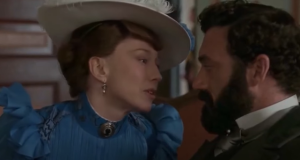
With all these threads converging, The Gilded Age Season 4 invites us to witness a reckoning of fortunes, loves, and loyalties. It is an invitation to watch as old money meets new ambitions, as public reputation collides with private longing, and as the pursuit of the future forces even the most powerful players to reconsider what they’re willing to sacrifice. As the narratives tighten and the stakes escalate, one thing remains certain: nothing in this gilded world is ever truly secure, and the next chapter could redefine who gets to claim the era’s most coveted prize—the future itself. What do you think will happen first—the unraveling of Bertha and George’s fragile alliance, or a breakthrough in the mystery of the shooter? Share your theories, and prepare for an season that may well rewrite the rules of the game.
